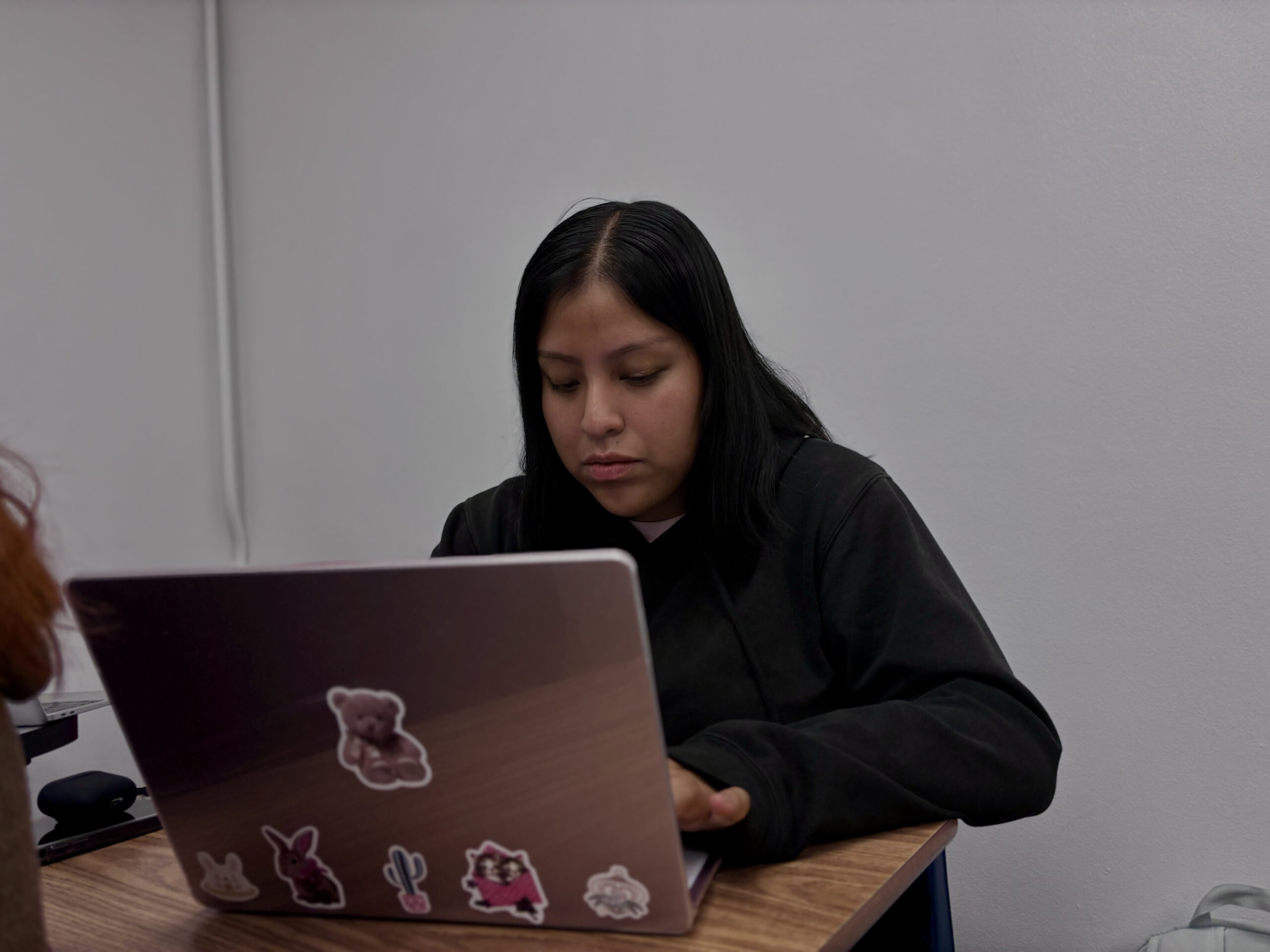By Viri Garcia Gallardo, Staff Reporter
Leticia Moreno’s path toward a college degree has not always been easy. Unlike some of her peers, who may have had more resources or benefited from support networks and quick access to college preparatory services, Moreno had to navigate much of the journey alone.
“The hardest part is not having someone at home who understands what you’re going through,” said Moreno, a first-generation college student. “My parents are supportive, but they don’t know what FAFSA is or what a research paper requires … I had to figure out everything independently.”
According to Moreno, the pressure to succeed extends beyond the classroom. She feels a tremendous amount of responsibility toward her family.
“It’s not just about getting good grades,” said Moreno, a third-year psychology student. “There’s this feeling that my family’s dreams are on my shoulders. They see me as the one who can change everything for us.”
First-generation students like Moreno, whose parents have not attended college or university, can face many challenges during the college experience. For some of these students, a college degree represents more than just academic success; it also promises a better future for everyone who has invested in them.
“I remind myself that I’m doing this not just for me but for my family and the generations after me,” Moreno said. “I want to show them that it’s possible.”
Like Moreno, third-year clinical psychology student Yesenia Gonzalez had a tough time acclimating to college life. When she was nine years old, her parents moved back to Mexico, where she lived for nearly a decade before returning to the United States for school. Gonzalez said she also struggled with the financial aid application process until she found help at CSUDH through Student Support Services (SSS).
“SSS helped me access the tools I needed and stay on track,” Gonzalez said. “I wouldn’t have made it this far without them.”
According to program coordinator Yesenia Alonso, SSS helps first-generation students become accustomed to the rigors of higher education. She said it’s essential for these students not to feel isolated on campus.
“They face unique challenges – whether it’s navigating financial aid, understanding academic expectations, or managing the emotional toll of being the first in their families to go to college,” Alonso said. “We want to build a community where they feel supported and capable of achieving their goals.”
Feeling connected to campus is especially helpful when first-generation students think they don’t belong at the university. Some students interviewed by The Bulletin for this story said they wrestled with feelings associated with what’s known as “imposter syndrome.”
“Sometimes it feels like I don’t belong here like I’ve somehow tricked the system into letting me in,” said Maria, a third-year business administration student who asked to be identified only by her first name to protect her privacy. “There’s always this fear that I’m not doing enough or that I’ll let my family down, even when I know I’m working as hard as possible.”
Moreno experienced similar feelings of self-doubt during her time at CSUDH. She admitted that she had questioned her capabilities or whether she deserved her opportunity at the university. She said it was hard not to see people like her in classes.
“You start to wonder if you belong,” Moreno said. “[But] I’ve realized these feelings are normal, and they don’t mean I’m incapable. I am here because I’ve worked hard and deserve this as much as anyone else.”

